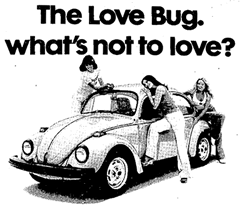A rhetorical question, suggesting that what is being spoken of is without fault.
What’s not to like?
What's the meaning of the phrase 'What's not to like?'?
What's the origin of the phrase 'What's not to like?'?
What’s not to like? Well, one thing that many people don’t like is this clichéd phrase. It has become as overused as ‘wake up and smell the coffee’, ‘think outside the box‘ etc.
It sounds like, and is, of American origin and has been in use there since at least the 1960s, possibly earlier and is in the mould of a Jewish rhetorical phrase, like ‘What am I, chopped liver?’ or ‘Is the Pope Catholic?’.
The earliest example of ‘what’s not to like?’ that I’ve found in print is in Dorothy Kilgallen’s review of the film Charade in the ‘Voice of Broadway’ column in the New York newspaper The Dunkirk Evening Observer, September 1963:
It has Audrey Hepburn, Cary Grant, Paris in living color, and a beautiful score by Henry Mancini. So what’s not to like?
‘What’s not to like?’ has spread to other English-speaking countries. Like many clichés, it has become so hackneyed as to have taken on an ironic meaning. In the USA, where it is still more common than in other regions, it is frequently applied to things that the speaker doesn’t consider in the least bit likeable. ‘What’s not to like?’ is often a preamble to ‘Well, apart from … [this, that and the other]… nothing’.
The ‘what’s not to love?’ spinoff variant started in 1974, as part of Volkswagen’s advertising copy for a limited edition range of Beetle models that were styled on the Love Bug that featured in Disney’s eponymous 1968 film. According to that same copy, the vehicle was painted in “luscious lime-green” – so, in my eyes, there was at least one thing not to love about it.
See other phrases that were coined in the USA.
Related phrases and meanings
Browse more Phrases
About the Author

Phrases & Meanings
A-Z
A B C D E F G H I J K L M N O P Q R S T UV W XYZ
Categories
American Animals Australian Bible Body Colour Conflict Death Devil Dogs Emotions Euphemism Family Fashion Food French Horses ‘Jack’ Luck Money Military Music Names Nature Nautical Numbers Politics Religion Shakespeare Stupidity Entertainment Weather Women Work
How did we do?
Have you spotted something that needs updated on this page? We review all feedback we receive to ensure that we provide the most accurate and up to date information on phrases.
